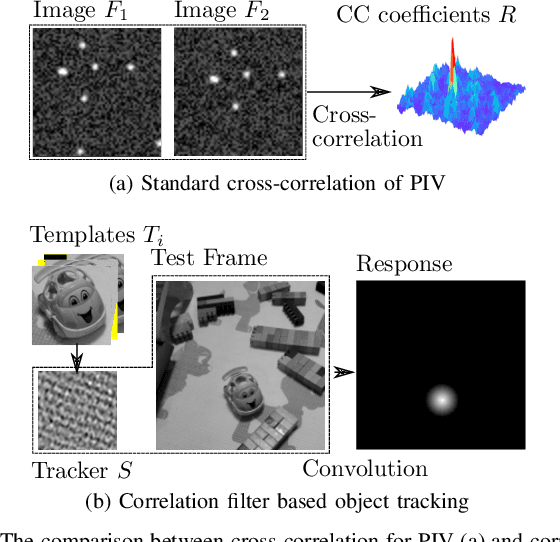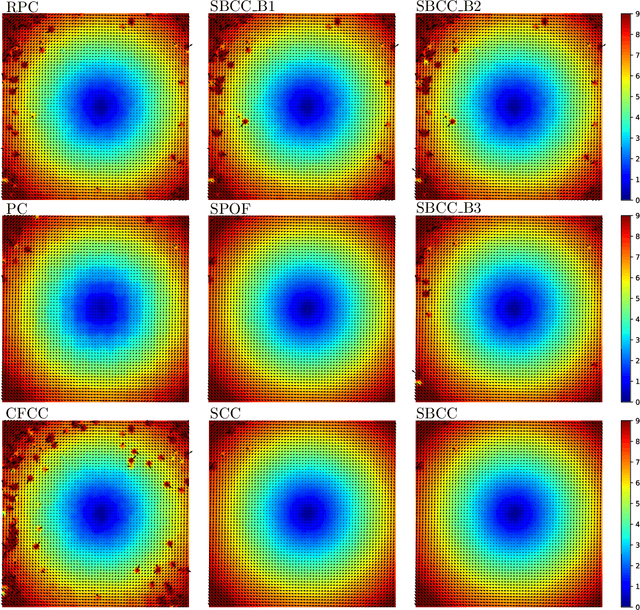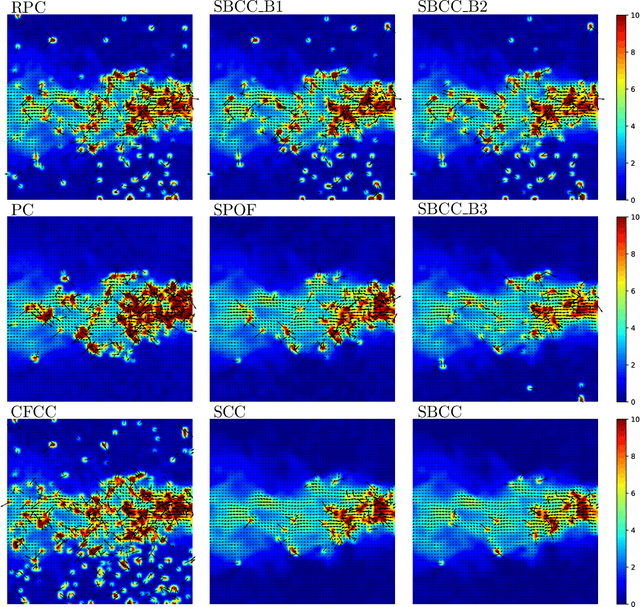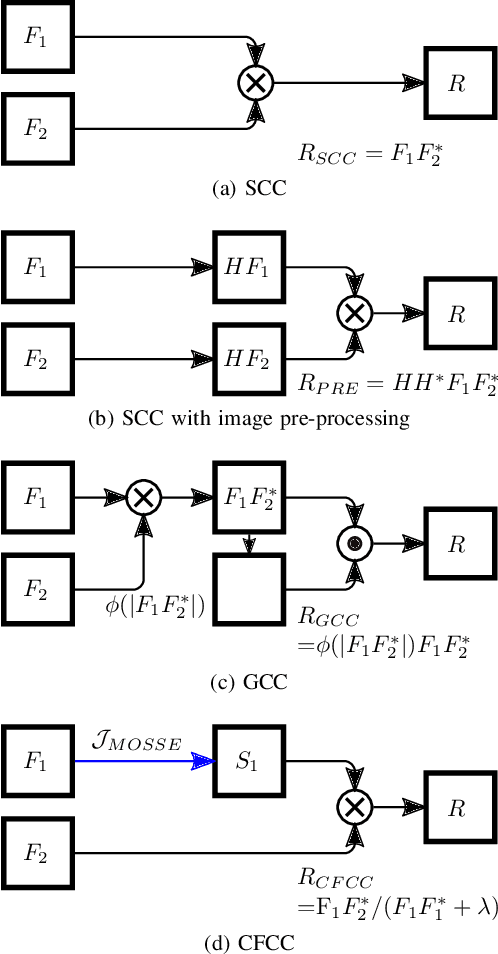Surrogate-based cross-correlation for particle image velocimetry
Paper and Code
Dec 10, 2021



This paper presents a novel surrogate-based cross-correlation (SBCC) framework to improve the correlation performance between two image signals. The basic idea behind the SBCC is that an optimized surrogate filter/image, supplanting one original image, will produce a more robust and more accurate correlation signal. The cross-correlation estimation of the SBCC is formularized with an objective function composed of surrogate loss and correlation consistency loss. The closed-form solution provides an efficient estimation. To our surprise, the SBCC framework could provide an alternative view to explain a set of generalized cross-correlation (GCC) methods and comprehend the meaning of parameters. With the help of our SBCC framework, we further propose four new specific cross-correlation methods, and provide some suggestions for improving existing GCC methods. A noticeable fact is that the SBCC could enhance the correlation robustness by incorporating other negative context images. Considering the sub-pixel accuracy and robustness requirement of particle image velocimetry (PIV), the contribution of each term in the objective function is investigated with particles' images. Compared with the state-of-the-art baseline methods, the SBCC methods exhibit improved performance (accuracy and robustness) on the synthetic dataset and several challenging real experimental PIV cases.
 Add to Chrome
Add to Chrome Add to Firefox
Add to Firefox Add to Edge
Add to Edge